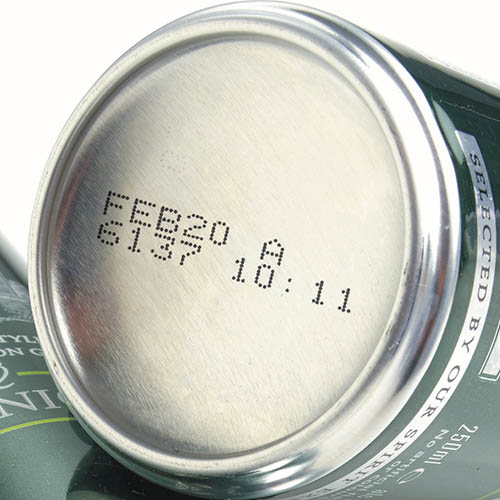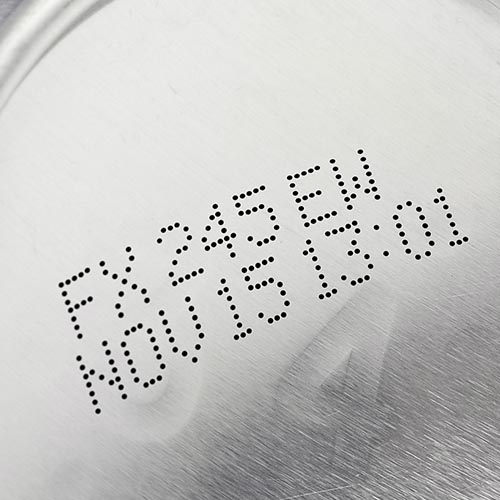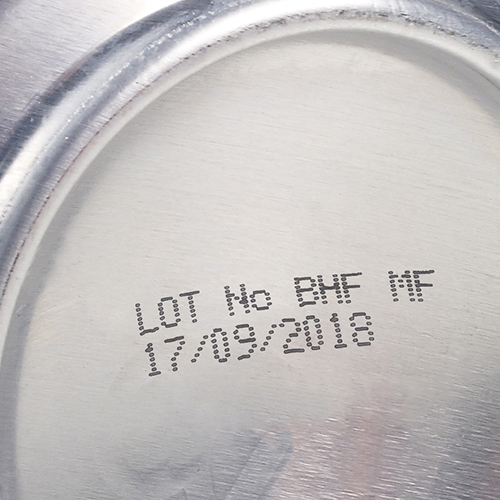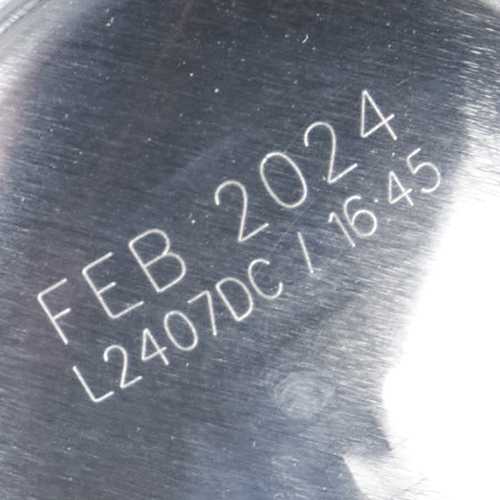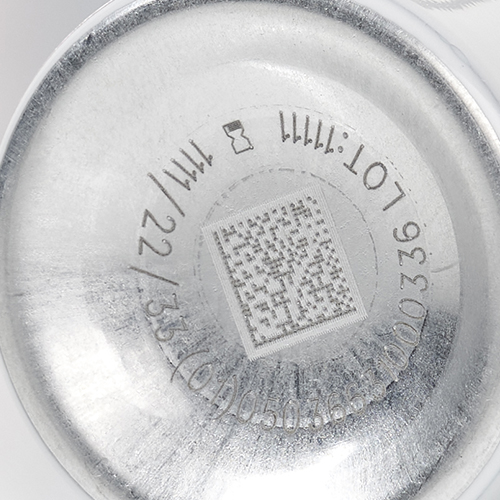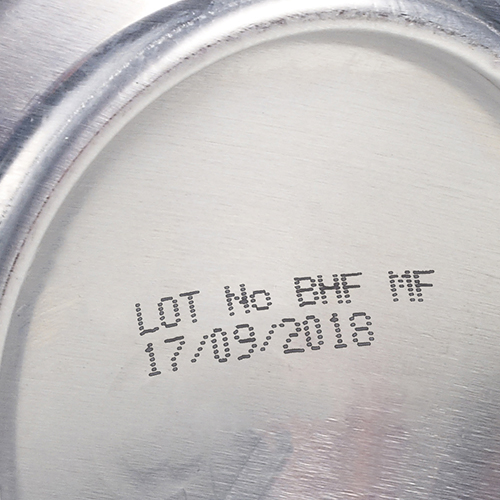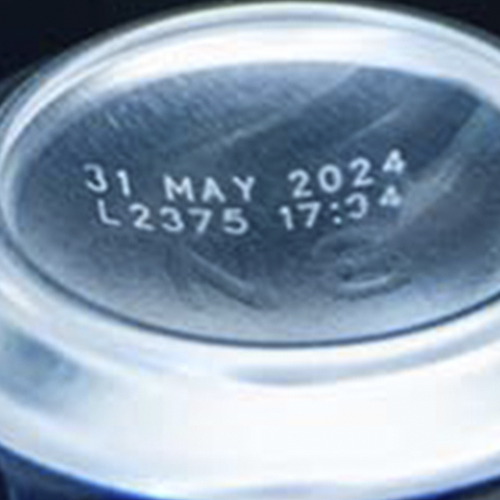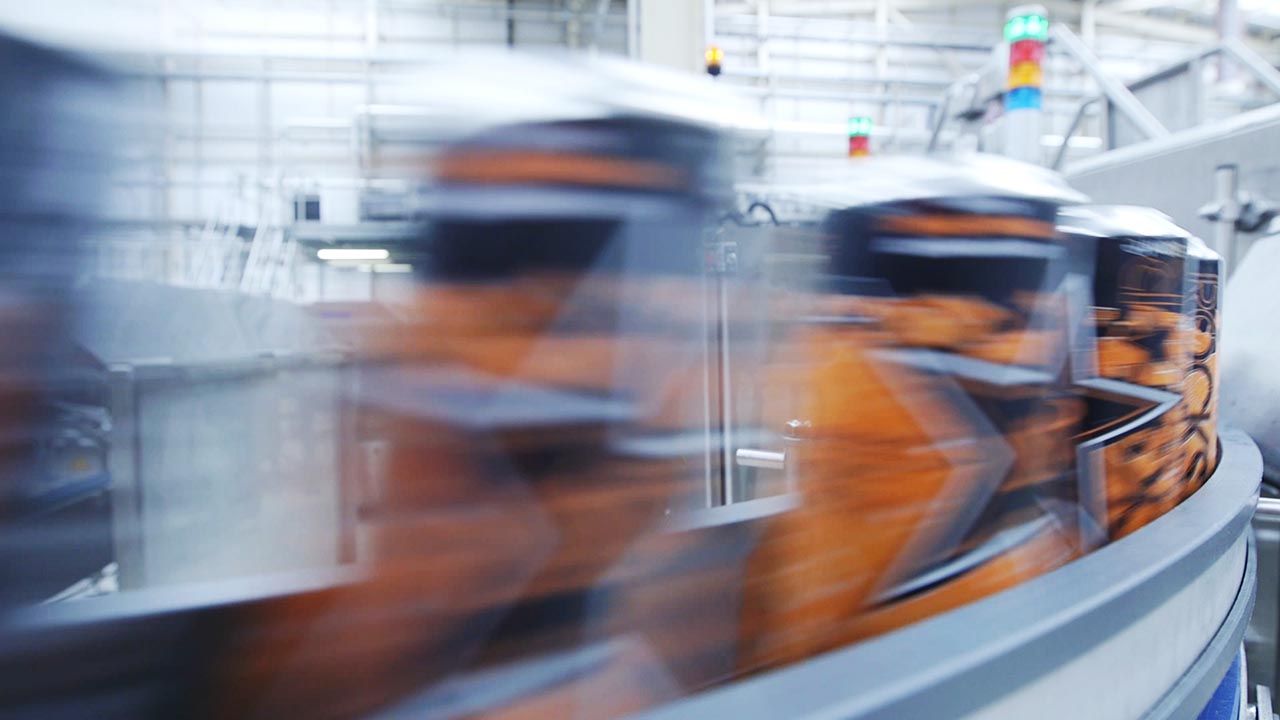
Label cans
Labeling solutions for aluminum cans and tinplate cans - reliable, legible and integrated inline.
Cans are processed in enormous quantities in the food and beverage industry - often at extremely high line speeds and under difficult conditions such as humidity or temperature fluctuations.
To ensure that best-before dates, batch numbers or production codes are reliably legible, robust labeling solutions are required that are precisely matched to the can material and the environment.
Whether aluminum or tinplate - with the right technology, the marking can be implemented permanently, high-contrast and inline.
Get in touch with usWhy is the labeling of cans important?
Ensure traceability: Production data such as batch or time codes enable seamless traceability - essential for recalls, quality assurance and compliance with legal requirements.
Product safety & information: Best-before dates and production times must be clearly legible on every can - even with high cycle rates, curved surfaces and changing environmental conditions.
Protect brand integrity: Clear and consistent codes strengthen trust in the brand and protect against tampering - especially with promotional products, export goods or returnable packaging.

Challenges in can labeling
The round metal surfaces and the high speeds in beverage filling place special demands on the marking technology:
Liability & speed
Many standard inks adhere poorly to painted, damp or condensed can surfaces. At the same time, the line speeds are extremely high - this requires fast-drying inks or lasers with a high clock rate.
Geometry & positioning
Curved surfaces, rotations and high cycle times make it difficult to place the codes precisely. Every millimeter counts, especially with multi-line print images or small cans.
Environmental influences
Humidity, temperature changes and cleaning chemicals are the order of the day in production. The labeling must be abrasion-resistant and durable - both in the filling process and during storage and transport.
Suitable technologies
Two main technologies are used for marking cans: laser and continuous inkjet (CIJ).
Which solution is most suitable depends on the material, the line speed and the requirements for durability and legibility, among other things.
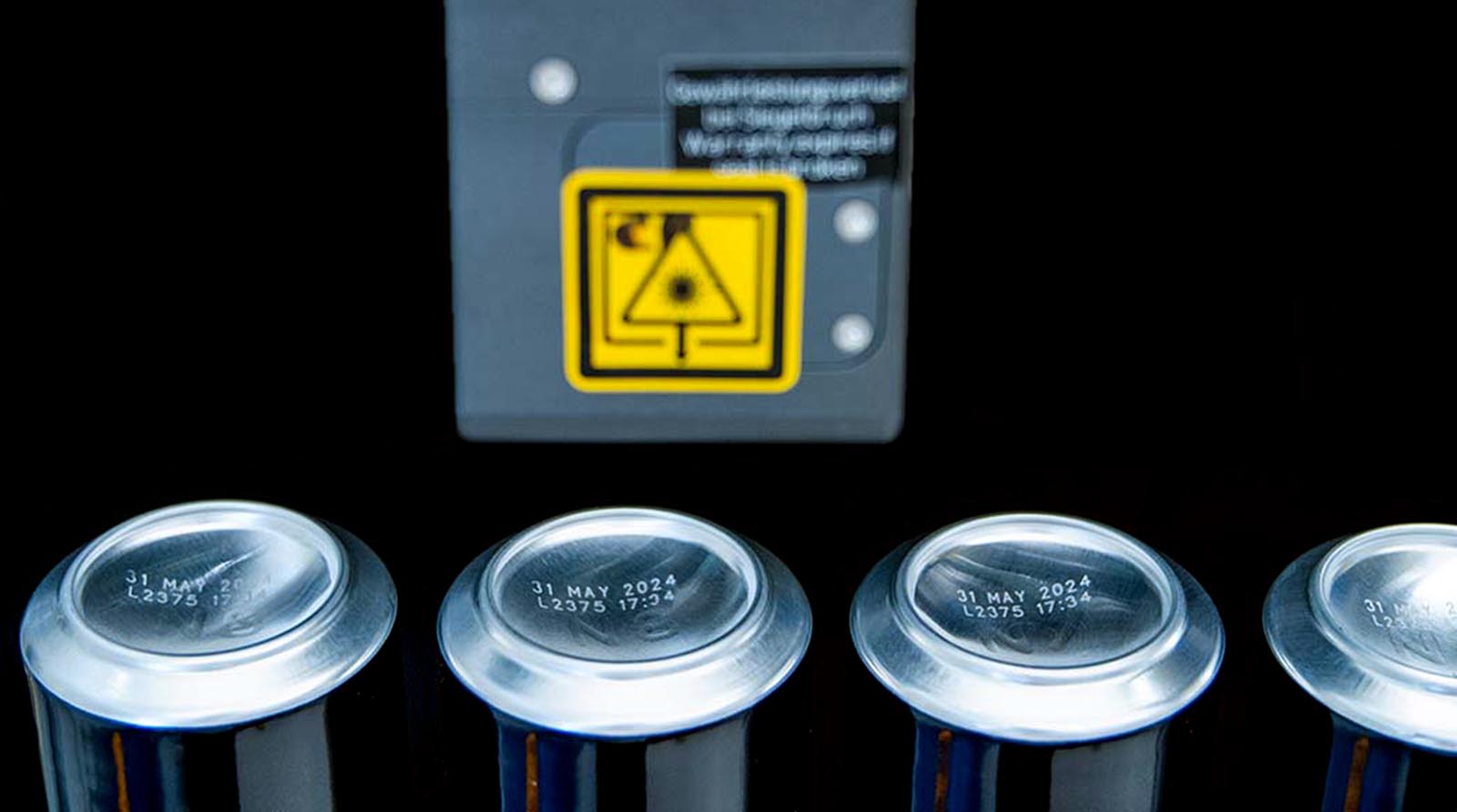
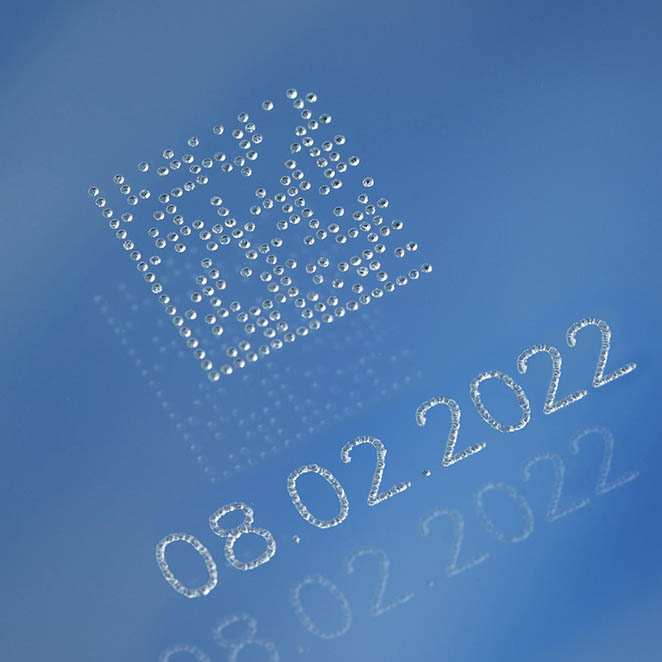
Laser marking
Lasers create permanently legible markings - either by engraving or by ablation on coated surfaces. Fiber lasers are generally used for cans. Particularly suitable for:
- High-contrast marking on aluminum or tinplate
- High demands on durability
- Fine codes or graphics
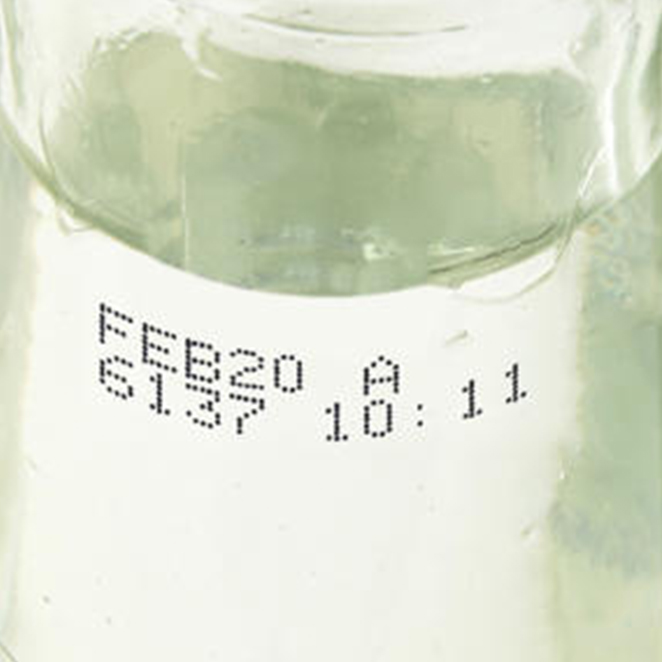
Continuous Inkjet (CIJ)
CIJ printers with specially developed inks enable flexible, non-contact labeling of beverage cans. Typical advantages:
- Suitable for painted or coated surfaces
- Quick-drying inks, even with condensation
- High-contrast, easy-to-read codes at high line speeds
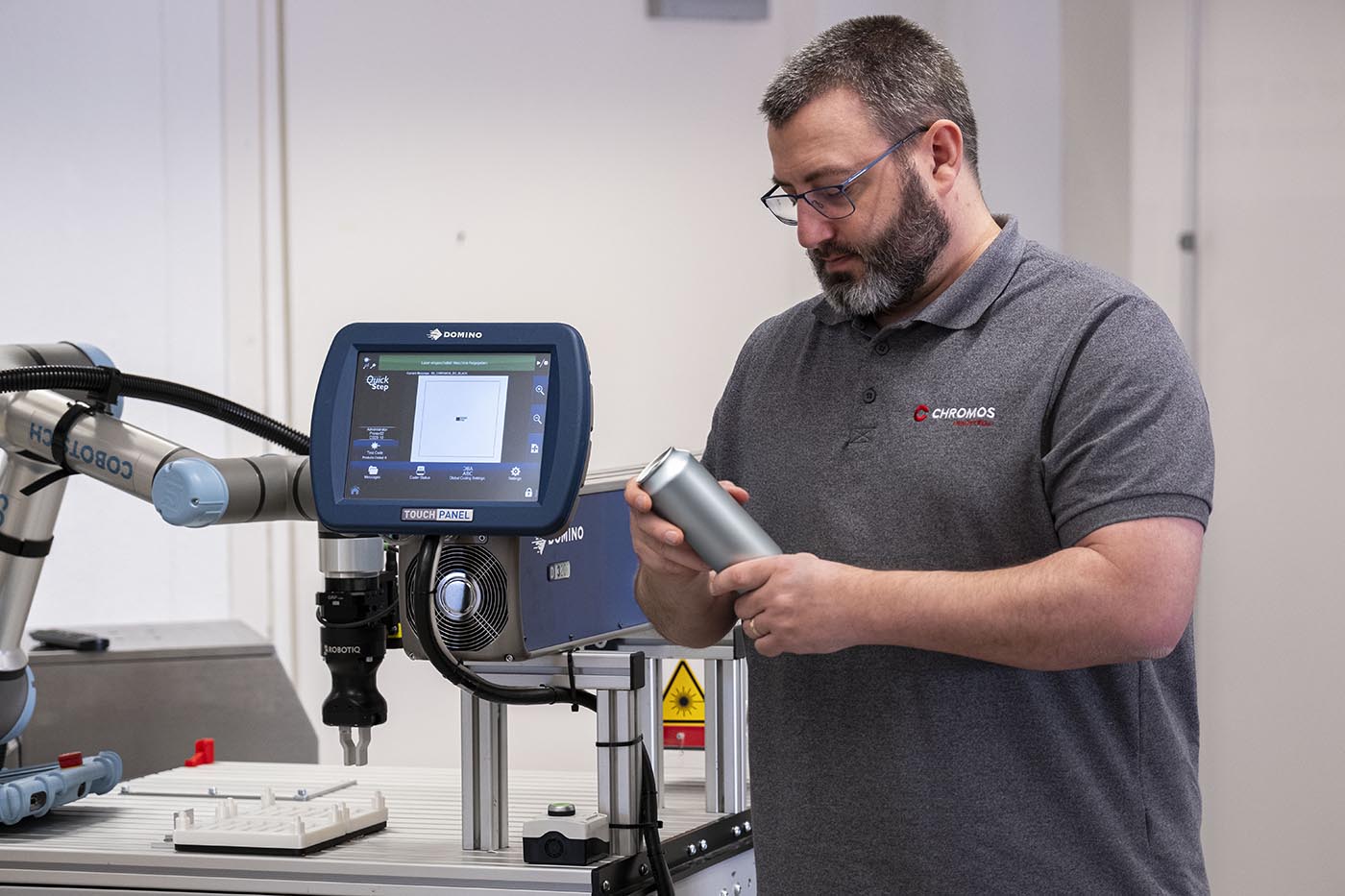
The CHROMOS way to the optimum solution
Understanding requirements
You describe your application to us - we clarify materials such as aluminum or tinplate, production environment, line speed and requirements for legibility, durability and traceability.
Suggest technology and solution
Based on your situation, we will show you suitable technologies and implementation options - for example fiber laser or inkjet - for reliable can marking.
Testing feasibility
In realistic tests, we check the legibility and durability of the marking - tailored to your production line and the specific requirements for coding cans.
Integration and support
We assist you with selection, integration and commissioning - with technical support, in-depth expertise and many years of experience in industrial coding and marking.
Our tip: Get advice from our experts
Not every can is the same - and not every marking technology is suitable for every material or product design.
We help you to find the right process for your line and your cans - high-contrast, reliable and permanently legible.
Case study: Can marking with fiber laser at Pepsi Bottling Ventures
Pepsi Bottling Ventures, the largest independent Pepsi bottler in North America, relies on fiber laser technology from Domino to code its beverage cans. The system delivers reliable, easy-to-read codes even in condensation - at up to 60,000 cans per hour.
"Production line efficiency has improved, production costs have decreased, as have customer complaints about poor print quality."
- Sabri Kundakcioglu, Vice President of Engineering, Pepsi Bottling Ventures
Application examples
Contact us
Our experts will be happy to help you. Get in touch with us!
